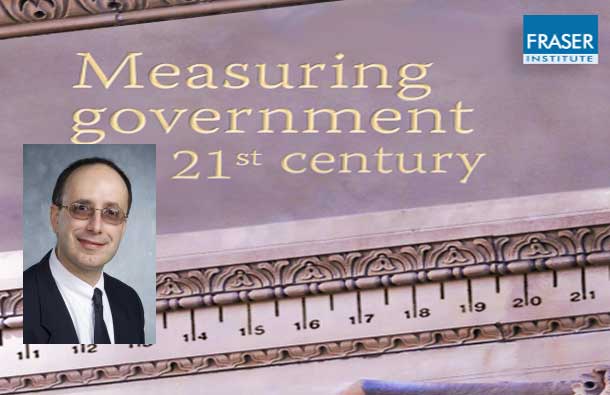
THUNDER BAY – ECONOMY – Government is perhaps the single most pervasive institution of modern life and its programs are important to our quality of life. Over the last 100 years, government spending around the world has grown both in terms of spending per capita and as a share of national output.
In a column in the National Post, Laval professor Stephen Gordon recently suggested that it’s the quality rather than the quantity of government that matters for economic growth because: “the empirical literature on the determinants of economic growth hasn’t found much of a link one way or the other between government size and economic performance. The quality of governments – things like the rule of law and a relatively corruption-free political culture – is more important than their size.”
The fact is that both matter.
Economic historians such as the late Douglass North focused on the important role of governmental institutions in economic growth including the rule of law and well-functioning property rights. Indeed, the importance of economic freedom, low levels of corruption, trust and well-functioning bureaucracies have also been examined as institutional factors determining economic growth.
However, numerous studies have documented a negative empirical relationship between government size and economic growth, although there can be debate over the magnitude of the impact. For example, a study by Harvard’s Robert Barro in the Quarterly Journal of Economics found economic growth is inversely related to the share of government consumption in GDP (a measure of public sector size) and insignificantly related to public investment. Another important study co-authored by leading fiscal policy expert and Harvard economics professor Alberto Alesina in the American Economic Review found an inverse relationship between increases in government spending and private-sector investment. These are just a few studies in a much larger literature finding similar results.
The size of the public sector is important to economic performance because via its taxing, expenditure and regulatory functions, the public sector can affect resource allocation and economic growth. The classic relationship is the so-called Scully Curve, which presents a hump-shaped relationship between economic growth and government size with the peak as the optimal growth maximizing size of government. Put another way, while some government spending can have positive benefits, there are eventually diminishing returns. As government grows beyond a certain size it can actually begin to hinder economic growth, thereby lowering living standards for average citizens.
The Scully Curve is not a theoretical abstraction. A recent study by the Fraser Institute analyzed international data covering the first decade of the 21st century found that – after controlling for confounding factors such as population, government debt, the institutional factors of governance and economic freedom and regional variations – there is a hump-shaped relationship between government spending (as a share of GDP) and the growth rate of per capita GDP. The study suggests that annual per capita GDP growth is maximized when total government spending in a country equals 26 per cent of GDP.
Taken together, the evidence suggests that there are important implications for economic growth associated with the size of government. Specifically, there are relatively smaller economic benefits once government grows beyond the 30 to 35 per cent of GDP range.
Moreover, one also has to consider the possibility that size and quality of government may be related. Nobel prize-winning economist James Buchanan argued that a larger public sector ultimately means more pursuit of government resources to obtain benefits – rent-seeking activity – in the form of economic regulation and licensing, which has harmful long-term effects on the economy. The long and short of it is this – the size of government does in fact matter for economic performance.
Livio Di Matteo is professor of economics at Lakehead University. He authored the 2013 Fraser Institute study, Measuring Government in the Twenty-first Century.
© 2016 Distributed by Troy Media







